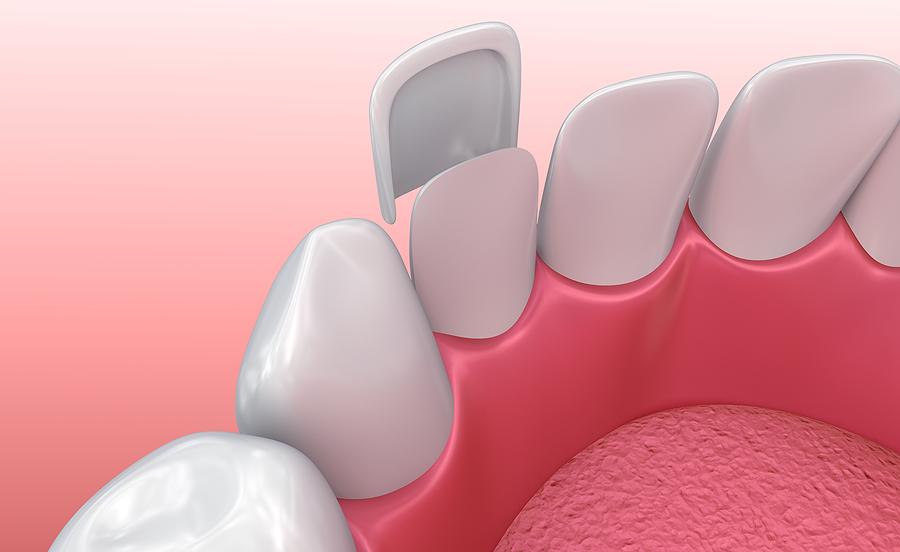Gum disease is an issue that often flies under the radar. Many people think that regular dental cleanings are enough to keep their gums healthy, but this isn’t always the case. While routine visits to your dentist play a vital role in oral hygiene, they may not be sufficient for those grappling with gum disease. Understanding this condition and its nuances can make all the difference in maintaining your smile and overall health.
If you're living in Alachua, FL, prioritizing prevention and gum care is essential. Let’s dive into what gum disease is all about and why it requires more than just regular cleanings to tackle effectively.
Understanding Gum Disease
Gum disease, or periodontal disease, is a common yet often overlooked condition affecting millions. It begins with inflammation of the gums, typically due to plaque buildup—a sticky film of bacteria that forms on teeth.
When ignored, this initial stage can progress into more severe forms. The body’s immune response to infection leads to gum tissue deterioration and potential tooth loss over time.
There are two primary stages: gingivitis and periodontitis. Gingivitis is reversible with good oral hygiene practices. However, if left untreated, it can develop into periodontitis—an irreversible stage that affects the bone supporting your teeth.
Recognizing the early signs is crucial for prevention. Understanding how gum disease develops allows individuals to take proactive measures in their oral care routine and seek timely dental help when needed.
The Importance of Regular Cleanings
Regular cleanings play a vital role in maintaining oral health. They help remove plaque and tartar buildup that brushing at home might miss. This proactive approach prevents cavities and gum disease from developing.
During these visits, dental professionals can identify early signs of problems. Catching issues early often leads to simpler, less invasive treatments later on.
Cleanings also provide an opportunity for personalized advice tailored to your unique needs. Your dentist can recommend specific techniques or products that enhance your daily routine.
Moreover, regular cleanings contribute to overall well-being. Healthy gums and teeth mean fewer complications down the line, both in terms of oral health and general health concerns.
Commitment to consistent appointments fosters a healthier smile now and in the future. It reinforces good habits while building trust with your dental care team for ongoing support.
Limitations of Regular Cleanings for Treating Gum Disease
Regular dental cleanings are vital for maintaining oral health, but they have limitations when it comes to gum disease. These appointments primarily focus on removing plaque and tartar buildup from the teeth's surface. However, they don’t address deeper issues beneath the gums.
When gum disease progresses, pockets form between the teeth and gums. Standard cleanings can miss this hidden area where bacteria thrive. Regular visits may not reach these depths effectively.
Additionally, if inflammation is present due to gum disease, a standard cleaning might only exacerbate discomfort without providing lasting solutions. Professional treatment dedicated to addressing periodontal concerns is often necessary.
For those in Alachua, FL, seeking prevention and gum care strategies tailored specifically for their needs, understanding these limitations is crucial. It emphasizes that regular checkups alone cannot resolve more serious conditions like advanced gingivitis or periodontitis. Contact us to learn more.
Signs and Symptoms of Gum Disease
Gum disease can be sneaky. Often, it starts without noticeable symptoms. However, as it progresses, certain signs become more apparent.
- One of the first red flags is bleeding gums during brushing or flossing. This shouldn’t be ignored; it's a clear signal that something isn't right.
- Swollen or tender gums are another warning sign. If your gums feel painful when you touch them, it’s time to pay attention.
- Persistent bad breath can also indicate gum issues. It's frustrating and embarrassing but may point to an underlying problem.
- As gum disease advances, you might notice receding gums or loose teeth. These changes signify that professional intervention is necessary.
- Pay close attention to these signs, and don't hesitate to reach out for help if you notice any of them developing in your oral health routine.
Different Stages of Gum Disease
Gum disease progresses through several stages, each with its own characteristics.
- The first stage is gingivitis. This is when gums become inflamed and may bleed during brushing or flossing. At this point, the damage can often be reversed with good oral hygiene.
- If left untreated, gingivitis can advance to periodontitis. In this stage, the inflammation worsens, and pockets form between gums and teeth. Bone loss may also begin as plaque hardens into tartar.
- Severe periodontitis follows if intervention doesn’t occur. Gums recede significantly, causing tooth mobility and potential loss.
Recognizing these early stages is crucial for effective treatment strategies in Alachua, FL. Each phase requires a tailored approach to restore gum health effectively and prevent further complications down the line. Regular dental checkups are vital for monitoring your gum condition at any of these stages.
Treatment Options for Gum Disease
When it comes to treating gum disease, options vary based on the severity of the condition.
- For mild cases, professional cleanings may suffice. The dental hygienist will remove plaque and tartar buildup that regular brushing can’t tackle.
- As gum disease progresses, scaling and root planing become necessary. This deep cleaning method removes bacteria below the gum line and smooths root surfaces for better healing.
- In more severe situations, surgical interventions might be required. Flap surgery allows dentists to access deep pockets in your gums for thorough cleaning. Gum grafting helps restore lost tissue by transplanting healthy gums from another area of your mouth.
- Antibiotics are also a common treatment choice. They help control bacterial infection during recovery periods after procedures or as part of ongoing management strategies.
- A personalized treatment plan is crucial in tackling gum disease effectively. Consulting with a local dental expert ensures you get tailored care based on your unique needs.
How to Prevent and Manage Gum Disease
Preventing and managing gum disease requires a proactive approach.
- Start with daily oral hygiene. Brush your teeth twice a day using fluoride toothpaste, and don’t forget to floss. This helps remove plaque that can lead to gum issues.
- Regular dental visits are crucial. Schedule checkups every six months or as recommended by your dentist in Alachua, FL. Early detection can make a significant difference.
- Consider incorporating an antibacterial mouthwash into your routine for added protection against bacteria.
- A balanced diet also plays a role in gum health. Foods rich in vitamins C and D support tissue repair and strengthen gums.
- If you smoke, seek resources to quit smoking, as it significantly increases the risk of gum disease.
Stay informed about any changes in your oral health so you can address them promptly with your dentist's guidance.
Conclusion: Why Extra Care is Needed for Those with Gum Disease
Gum disease is a serious condition that requires more than just routine dental cleanings. While regular visits to your dentist are crucial for maintaining oral health, they may not be sufficient if gum disease is present. This condition can progress silently and lead to significant complications if left untreated.
Extra care, including specialized treatments and diligent home care routines, is essential for anyone dealing with gum issues. It’s important to take the signs of gum disease seriously and seek appropriate treatment as soon as possible. By understanding the stages of this disease and recognizing its symptoms early on, you can prevent further damage.
Additionally, incorporating preventive measures into your daily habits will support better gum health in the long run. If you're in Alachua, FL, prioritize both prevention and active management of your gum care routine. Your smile deserves it!
To learn more, contact Allin Dental Care at 14601 NW 140th St, Alachua, FL 32615. You can also call us at (386) 418-3636 to schedule your bookings and consultations; you can also email us at allindentalcare@gmail.com with any query or concern. Please visit our website to learn more about our services.
More Blog Posts
Location
14601 NW 140th St,
Alachua, FL 32615
Office Hours
MON - WED9:00 am - 1:00 pm
THU - FRI8:30 am - 4:30 pm
SAT - SUNClosed
14601 NW 140th St,
Alachua, FL, 32615
Phone: (386) 418-3636Text Us: (386) 418-3636




